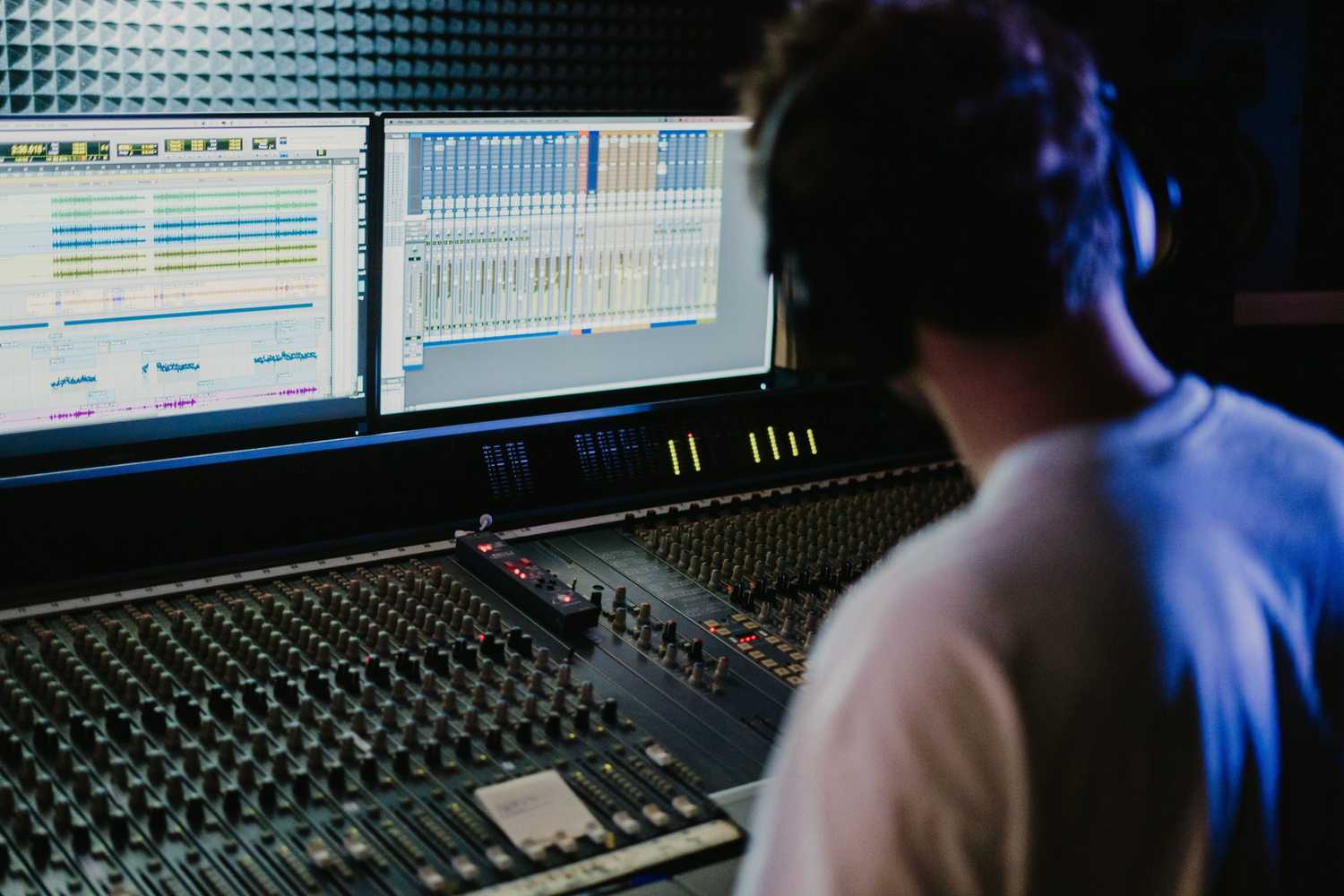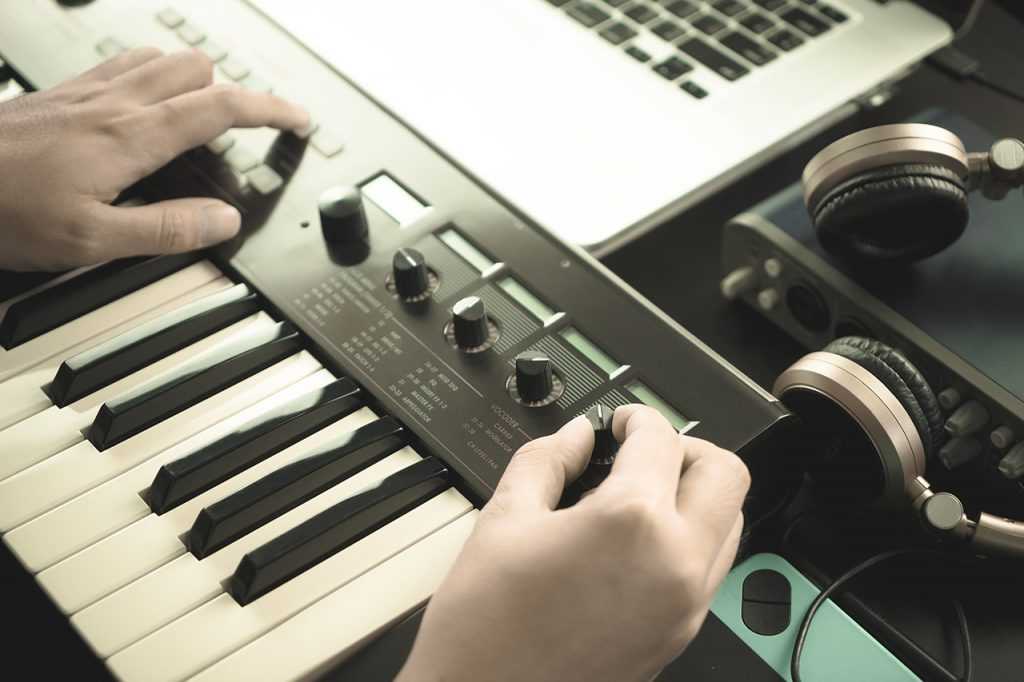When it comes to music production tips, the internet is an absolute minefield of bogus opinions sold as truths. Whether it is arguments on DAW choice, the preset vs manual synthesis debate, or even the question of sample rates, everyone has a different opinion! Short of cracking open a paperback, consensus can be rare in our community! Fictitious judgments aside, many producers actually find common ground on one particular subject – music production workflow.
In today’s article, we’ve compiled a list of music production workflow tips and tricks that are proven by producers to increase productivity and creativity.
Let’s get started!
Workflow is something that happens before you even drag a kick into your project.
Itemized as an everyday method that help producers get their work done, workflow is often illustrated in a sequence of important steps that improve creativity, speed, enjoyment and the all-important ability to finish a record.
Too many producers spend way too much time messing around with insignificant details without seeing the bigger picture. The producers who have honed their craft through cutthroat workflow will assure you: it makes a whole world of difference!
If you want to get the most out of your production, be it a hobby or a career, setting aside time to write beats is essential.
Working at 20-minute intervals here and there throughout the day is not conducive to a worthwhile production session. In most cases, you’ll rarely produce any tangible results. More often than not, you will find yourself frustrated.
We’re not saying that you have to have a rigorous strategy that must be perpetuated come hell or high water, but using a calendar to rule out time slots for sessions never hurt anyone.
In fact, dedicating blocks of your time to production (especially when 60 minutes or longer) will help you further devote yourself to the highly sought after “in the zone” state of creativity we all love.
The goal is for any producer is to combat creative blocks and maximize your output, and putting a time marker on each of your tasks is a great way to push yourself into a creative space.
Use the timer function on your phone and put a time limit on common production tasks such as jamming, EQ, compression, etc.
Task-based production is a very simple theory, but it certainly helps producers put the effort into the planning process, which is immensely helpful and logical.
Oh, that classic line!
We know, we know…it’s painful.
Even still, creating a personalized music production library is one of the most worthwhile things that you can do as a producer, you might even find it fun once you get going. On top of that, it will save you an unimaginable amount of time.
You will no longer find yourself sifting through randomly named folders, and you’ll more than likely stumble across some gems you forgot you even had.
Back everything up, build a file system and organize your file structure so that you can access them without even having to think about it.
Even better, create a “favorites” folder, for those moments when you have an idea and you need to get it down ASAP.
These moments are seriously precious and you most definitely don’t want to spend 20 minutes searching for the “perfect” snare sample. Before you know it, your great idea is lost in the ether.
Think of this as creating your “own sample pack.” What sounds inspire you as an artist? Which kicks, hats, shakers and synths do you fancy?
Creating folders for your favorite drums, chords, and leads will always help you get a vibe going, even if you opt to change them at a later stage.
If you need to get a head start on loading up your library with some immediately usable drums, look no further than Toolroom Academy very own Ben Remember’s Drums & Grooves.
In either case, get organized!
Another great workflow tip that’s based around the creative side of writing music involves opening your mind to all creative stimuli in the early stages of production.
When jamming, try not to think about what you’re doing. Just do it.
Messing around and trying new things that you wouldn’t otherwise opt for puts you in an open state, where creativity flows.
Take it from us: you have permission to be as goofy and weird as you want. This music thrives on those childlike feelings of being carefree, and in the moment. Just have a look at any dancefloor, and you’ll see what we mean.
Being critical of your work from the start can put you in a closed state, which in the early stages of production is not favorable to creative output.
Ease up a bit. Have a laugh and jam.
Always keep a notepad or recorder with you to jot down ideas, tunes or riffs that come into your head. A notepad that can help you write useful instructions and directions that occur often when deep into a production session.
We see it all the time. A student is working on a promising new tune, but then they have a completely unrelated, but equally worthy idea pop into their creative mind.
This is like gold dust slipping through your fingers! Write them down, and come back to them later.
Personally, we love this notebook from Moleskin and the ZOOM Recorder for jotting down quick ideas on the fly.
Pro-tip: You can also use your new piece of gear to record field noises and put them in your tracks as we outlined in our 10 Techno Production Tips article.
One of the biggest challenges producers face when they sit down to start a new project is trying to do everything at once.
We see it all the time. New producers will try to fine-tune their lead synthesizer whilst tweaking the semitones of a kick drum before they even have an idea.
Needless to say, this is one of the most unproductive ways to work.
Don’t do it!
Everyone has a different workflow when it comes to ordering each section of their work, but in doing so you will save yourself a great deal of time, and find that you actually start finishing your songs, rather than wasting half an hour tweaking your bus settings when the project never even sees the light of day.
Instead, we suggest that you separate your production into three distinct phases: jamming, arrangement, and mixing.
Spend ample time on each, but once you’re done with one, be done with it and move forward.
In reality, everyone has a different approach when it comes to music creation, and that’s okay!
There’s nothing wrong with having a unique way in which you work that doesn’t meet
But, if you frequently find yourself getting stuck and being unable to finish tracks, we seriously suggest you do an audit of your current techniques and apply the tips mentioned here.
These guidelines offer a few alternative approaches to help you finish your tracks considerably quicker.
If you’re still struggling to get “in the zone” and find a workflow that brings you success, we can help.
Toolroom Academy offers courses online, where we help students create a workflow that seeks to have them well on their way to writing, producing, and finishing records.
Curious about how we can help you jumpstart your career? Drop us a line, and let’s talk about it!


